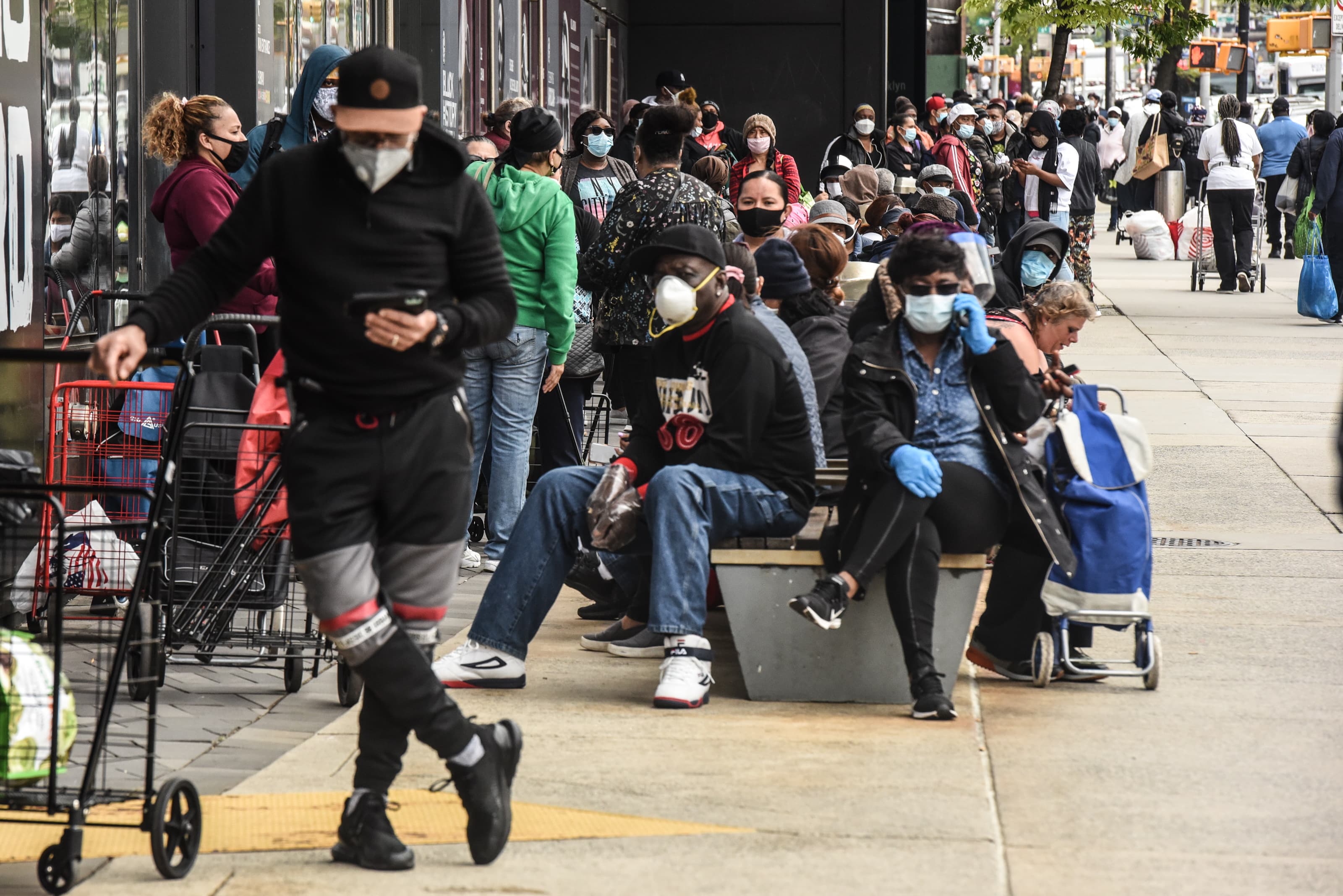Weekly jobless claims stayed above 1 million for the 13th consecutive week as the coronavirus pandemic continued to hammer the U.S. economy.
First-time claims totaled 1.5 million last week, higher than the 1.3 million that economists surveyed by Dow Jones had been expecting. The government report's total was 58,000 lower than the previous week's 1.566 million, which was revised up by 24,000.
The elevated claims number persists even as all states have reopened to varying degrees and nonfarm payrolls grew by 2.5 million in May. Before the coronavirus, the record for a single week was 695,000 in September 1982.
"The 58K drop in claims this week is very disappointing, given that the level still remains so high; the worst single week after the crash of 2008 saw claims at 665K," said Ian Shepherdson, chief economist at Pantheon Macroeconomics. "It's not clear why claims are still so high; is it the initial shock still working its way up through businesses away from the consumer-facing jobs lost in the first wave, or is it businesses which thought they could survive now throwing in the towel, or both? Either way, these are disappointing numbers and serve to emphasize that a full recovery is going to take a long time."
Continuing claims, or those who have been receiving unemployment benefits for at least two weeks, nudged lower to 20.5 million, a decline of 62,000 from the previous week.
Markets reacted negatively to the claims disappointment, with the Dow Jones Industrial Average down about 1% in early trading.
In addition to the standard filings, 760,526 claims were filed under the Pandemic Unemployment Assistance program, an increase of more than 65,000, according to unadjusted numbers.
The total of those receiving benefits was 29.1 million as of May 30, which was the most recent week for which data was available. That was a decrease of 375,522 from the previous week.
Numbers not adjusted for seasonality showed 1.43 million claims, a decline of 128,240, or 8.2%. Some economists are watching that number more closely as seasonal factors are playing less of a role due to the unusual nature of the coronavirus-related work stoppages.
Florida (-25,863) and Oklahoma (-20,788) showed sizable drops from the previous week, according to unadjusted numbers. Texas showed the biggest gain, with 4,219.
Extended unemployment benefits that are providing many workers $600 above what they normally would receive are scheduled to run out at the end of July. Congress is working on an extension of the program put into place as the pandemic hit.
Fed Chairman Jerome Powell on Wednesday urged Congress to extend the benefits though he did not recommend anything specific.


